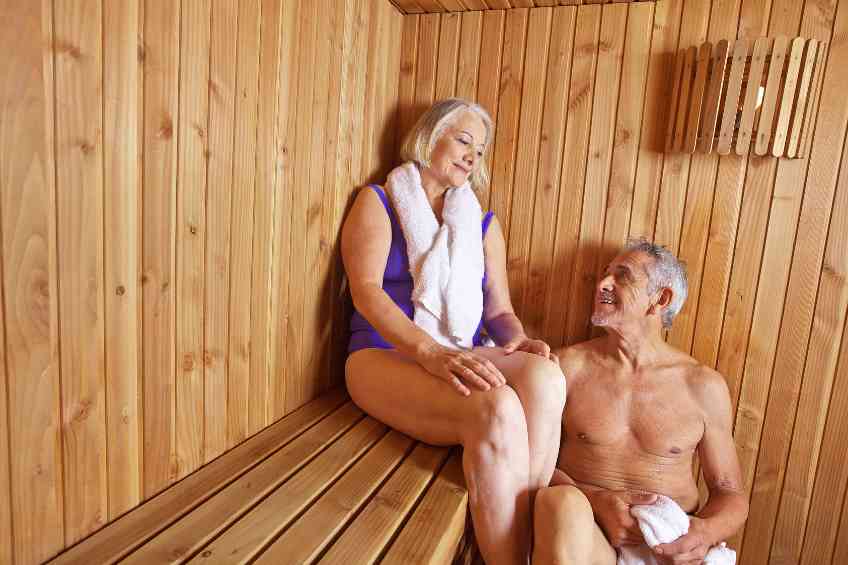By John Hand –
Saunas are a way of life in Finland, as it has been since 7000 BC when the ancient Finns came up with the idea. Today, it is still such an integral part of the culture that the country’s president has their own private sauna and another is on the ready for members of Finland’s parliament.
Of course, now the popularity of saunas is worldwide. They can be found in gyms, health clubs, resorts, cruise ships and private homes. The internet, in fact, is filled with instructional videos on how to build at-home saunas—and they can take a lot of different shapes and styles. There are, for example, indoor or outdoor saunas. There are also different options for how to heat saunas. The Finns traditionally use wood. But other options include steam or infrared light. The average build-out cost is $4,500. However, prices can be as low as $3,000 and more than $10,000 depending on design, size and bells and whistles.
The burning question when it comes to saunas is their worth. Do they provide anything more than a good sweat, which lots of people like? The answer is yes, but there are caveats for concern.
Typically, a sauna is between 150 degrees and 195 degrees Fahrenheit, Healthline.com reports. The dry heat generated in a sauna can cause a person’s pulse to rise by 30 percent, which leads the heart to double the amount of blood it normally pumps.
During a normal session, which Harvard Health Publishing advises should not exceed 20 minutes, the average person will give off a pint of sweat. This release helps flush toxins out of one’s body, which among other benefits will improve skin health as pores are cleaned out. Saunas have also been known to help relieve hangovers, though there is limited research to back up this claim.
The sweaty benefits don’t end there. Saunas also improve cardiovascular function. A 2015 study found that men who took a sauna session at least once a week lowered their chance of cardiovascular death. Those who took multiple sauna sessions a week were even better off.
A sauna session is also a great idea after any type of workout, Men’s Health reported. The obvious benefit is recovery thanks to the heat, which causes blood vessels to relax and dilate, increasing blood flow to muscles, joints and other organs, relieving that post-workout pain.
Other gains include the feeling of relaxation and boosting immune systems. Some research suggests that saunas can even reduce the risk of Alzheimer’s and dementia while promoting general cognitive health.
Of course, it’s not surprising that anything that feels this good comes with risks, which is why it is important to adhere to the 20-minute limit. The most common issue is overheating. Being properly hydrated is therefore essential, which is why it is critical to drink water before and after a sauna and to avoid alcohol and drugs before getting in. Dizziness is another potential risk. Also, anyone with blood pressure or cardiovascular concerns should be on guard to keep their sessions short. Finally, sauna sessions can temperately lower sperm counts, which may be a concern for those wishing to conceive.
The benefits, however, are likely to outweigh any concerns, especially if people hydrate, limit their sessions and are aware of any inherent risks. Not convinced? Just ask the Finns. In a country of five million people, there are three million saunas. Finns also live eight years longer than the global average, according to the World Health Organization.










